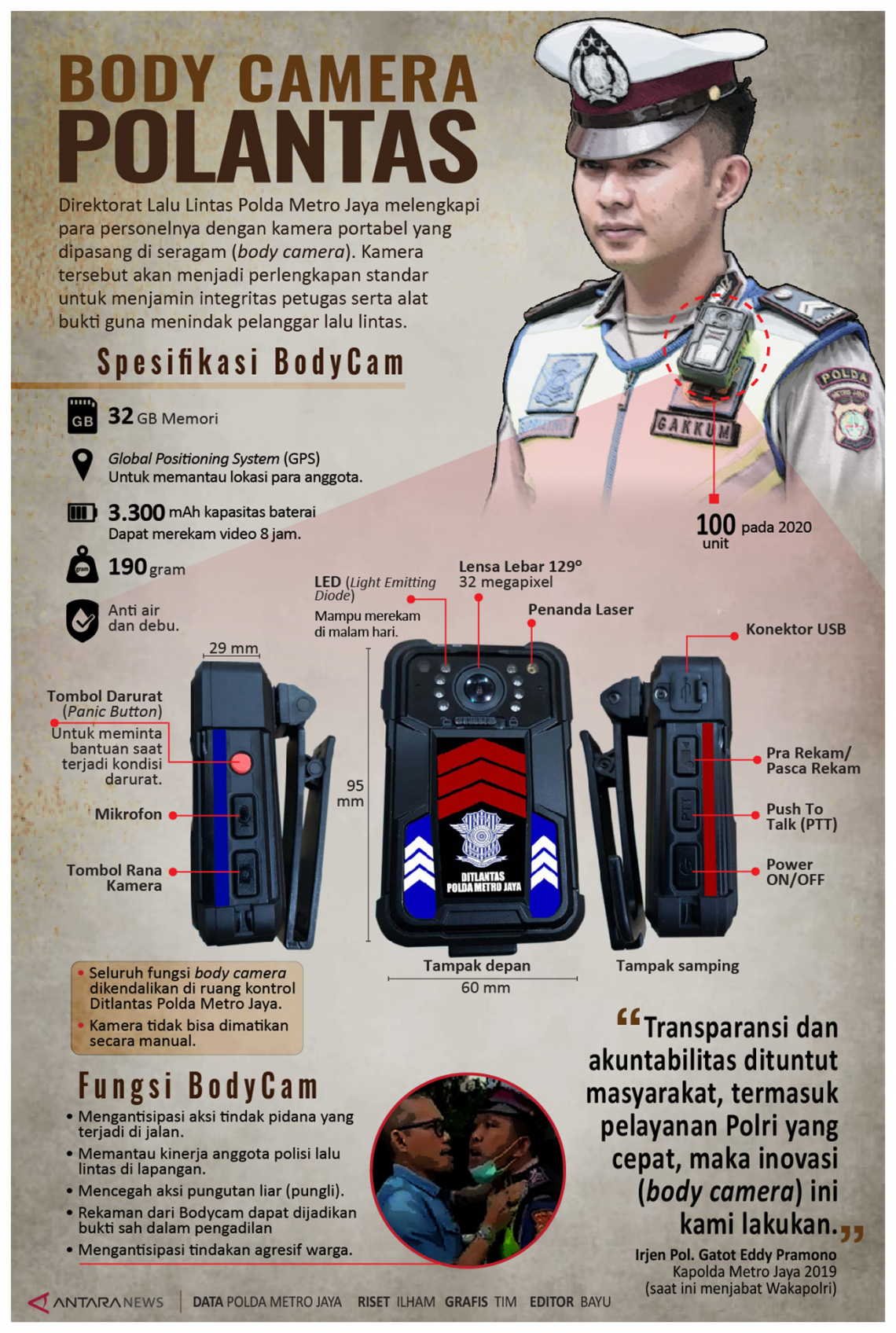In a move towards greater transparency and accountability within the police force, Indonesian law enforcement officers are set to be equipped with body cameras. This development, recommended by the National Police Commission and endorsed in the 2021 Year-End Report of the Indonesian National Police (INP), signifies a significant leap forward in law enforcement practices.
The rationale behind this initiative is clear: to ensure accountability and transparency in the performance of police officers in the field. Poengky Indarti, the spokesperson for Kompolnas, highlighted the importance of body-worn cameras in overseeing the conduct of police personnel. By using this technology, authorities can prevent misconduct, such as excessive use of force, corruption, and arrogant behavior, thus preserving the integrity of the police institution.
This decision is not without reason. Past instances of police officers deviating from regulations and tarnishing the reputation of the force have underscored the need for oversight. The implementation of body cameras serves as a preventive measure to deter the abuse of authority and maintain the public's trust in the police force.
Learning from the experiences of other nations that have adopted body cameras, it is evident that these devices are effective tools for curbing police misconduct. They serve as a means to prevent abuses, document incidents, and ensure accountability and transparency. Such devices have been widely adopted in advanced countries like the United Kingdom and the United States, as well as in several ASEAN countries, including Singapore, Malaysia, and the Philippines.
The use of body cameras is expected to commence in 2022, focusing primarily on police officers who are actively engaged with the public and operate in the field. Officers in various units, including criminal investigation, traffic control, public order and safety, community policing, and riot control, will be equipped with this technology.
For internal oversight, the Indonesian National Police will manage the supervision, with Propam and Irwasum being the internal supervisory bodies. Kompolnas, as an external and functional watchdog, will also play a role in ensuring the effective use of these devices.
The introduction of body cameras not only enhances the professionalism of police officers but also aligns with the modernization of the Indonesian National Police. This modernization signifies a commitment to uphold human rights and to provide law enforcement services in a more humane and professional manner.
The adoption of body cameras for law enforcement in Indonesia represents a significant leap forward in promoting accountability, transparency, and responsible conduct among police officers. As we enter this new era of policing, it is crucial that the technology is effectively implemented and integrated into the daily routines of police personnel. It will not only serve as a tool for oversight but also as a testament to the commitment of the Indonesian National Police to uphold the highest standards of ethics and professionalism.
In an age where transparency and accountability are paramount, the use of body cameras is a significant step towards ensuring that the police force upholds the law while respecting the rights of all citizens. It is now up to the Indonesian National Police to ensure that this technology is effectively employed to bring about the desired change in law enforcement practices and to demonstrate to the public that they are committed to reform and responsible policing.












